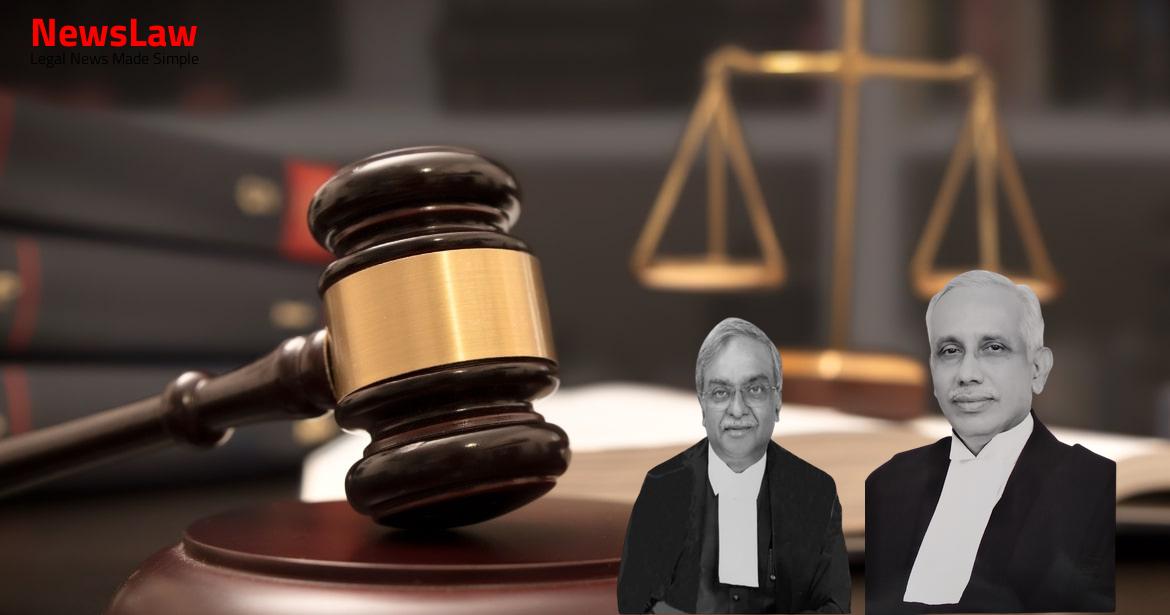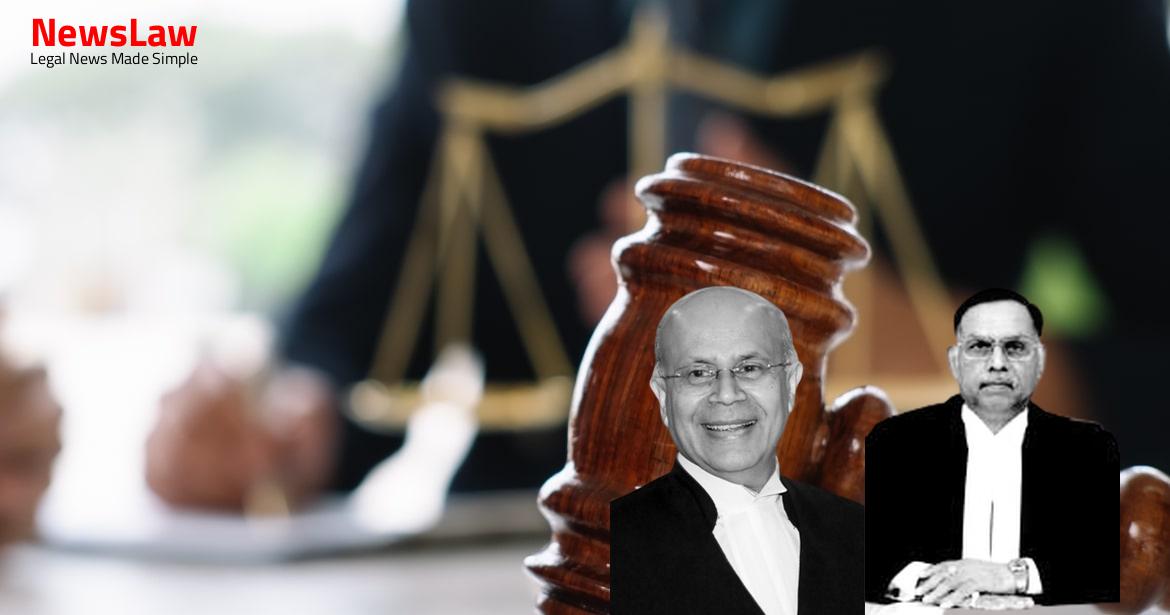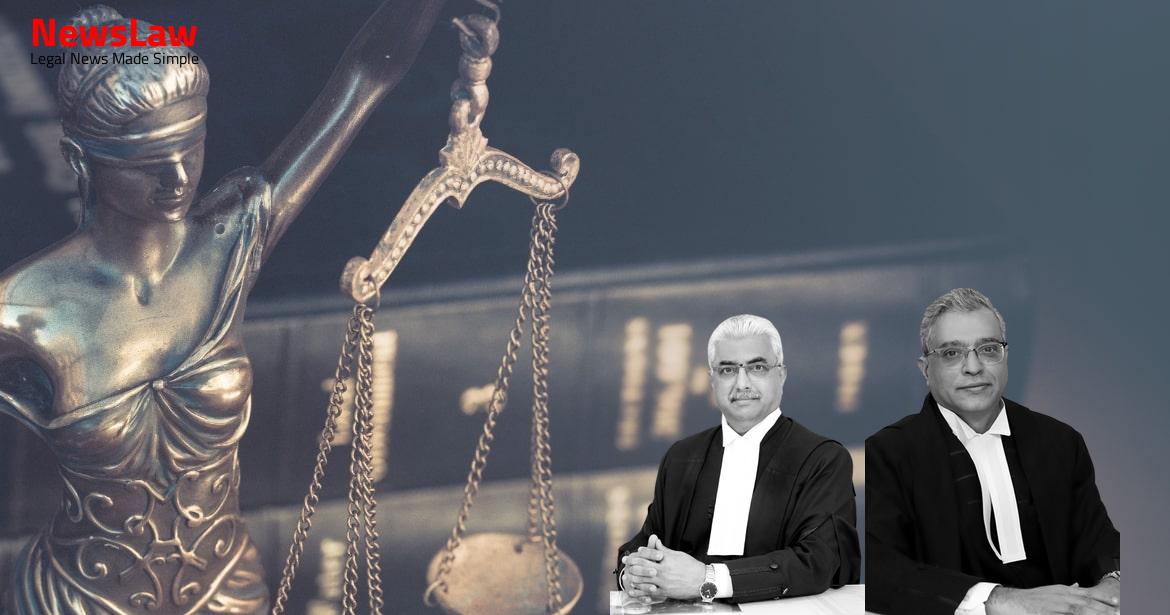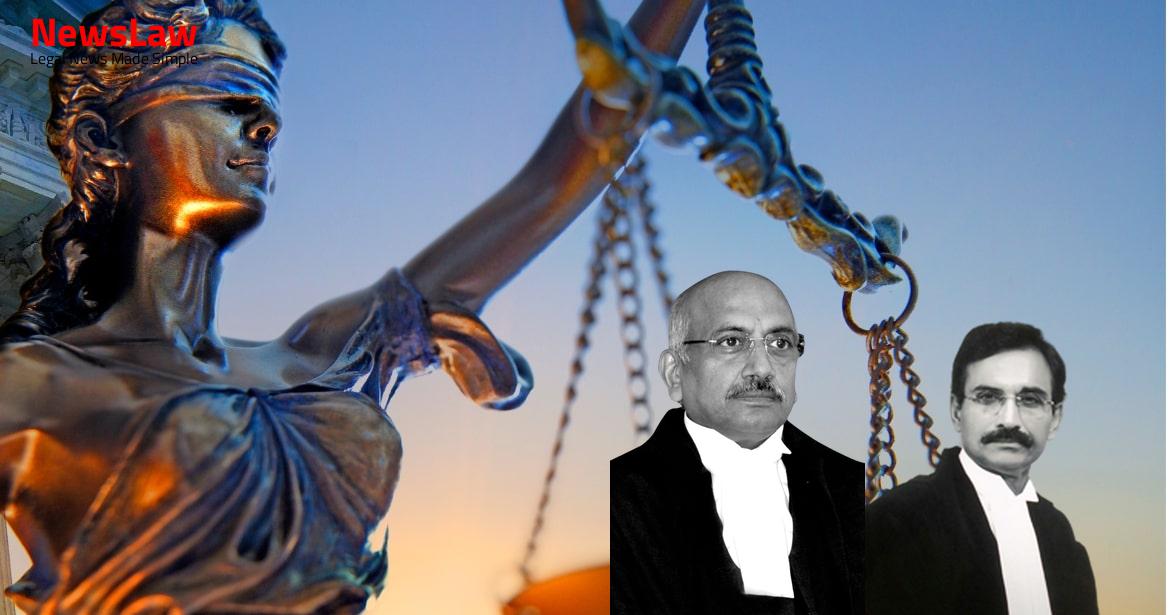The legal case at hand delves into a dispute regarding land compensation for road construction/widening. The focus is on the court’s detailed legal analysis of property rights, compensation claims, and the application of Article 300-A of the Constitution. The case presents a nuanced examination of the obligations of public authorities in depriving individuals of their property and the inherent right to claim compensation. Let’s explore the key legal aspects of this case and the implications of the court’s analysis on property rights.
Facts
- The learned Single Judge found that the appellants were entitled to compensation for the land utilized for road construction/widening.
- It was established that the land of the appellants was indeed used for the road construction/widening.
- Directions were issued to the State-Respondents and the Municipality to disburse compensation determined by the Collector based on market value of the property.
- The appellants were given the option to challenge the compensation amount in Civil Court if unsatisfied.
- The road in question is owned and possessed by the Panchayat.
- The PWD was assigned the construction work through due documents.
- The land was surrendered free of cost for the road construction.
- The Panchayat denies assuring adequate compensation to the appellants.
- The construction of the road was completed in 2010.
- The appellants approached the High Court in 2014, facing delay in the petition.
- The Panchayat denies encroaching on any part of the appellants’ land.
- The appellants voluntarily surrendered their land for road construction.
- No acquisition proceedings were undertaken due to voluntary land surrender.
- The appellants were assured compensation by the PWD but received none.
- Multiple representations were made by the appellants for compensation.
- The Panchayat requested the appellants to utilize their land for road construction.
Also Read: Balancing Private Grievances and Public Interests
Issue
- The issue revolves around the stand taken by the third respondent Municipality, which succeeded the Sulthan Bathery Grama Panchayat.
- The question arises as to whether the Municipality’s stand is valid or not in the given context.
- Further assessment and legal interpretation are required to determine the legitimacy of the third respondent’s position.
Also Read: Quashing of Criminal Proceedings Based on Insufficient Allegations
Analysis
- The Division Bench did not find any material on record produced by the Panchayat/Municipality or the PWD to support the claim of voluntary land surrender by the appellants.
- The Panchayat/Municipality failed to respond to the representation sent by the appellants demanding compensation.
- There was no formal documentation or evidence of voluntary land surrender provided by the PWD or the Panchayat/Municipality.
- The burden of proof of voluntary surrender should have been on the Panchayat/Municipality.
- The appellants consistently claimed they were assured compensation by the Panchayat.
- The Division Bench wrongly shifted the burden of proof onto the appellants.
- The Division Bench’s reasoning about the lack of a compensation scheme was contrary to the constitutional right of property under Article 300A.
- The PWD’s statement about the land being voluntarily surrendered without compensation was not sufficient evidence.
- Deprivation of property without authority of law violates Article 300A and Article 21 of the Constitution.
- The appellants, being farmers, were not well-versed in legal intricacies and relied on assurances of compensation.
- The Division Bench erred in requiring the appellants to prove assurance of compensation, despite lack of evidence from the PWD or Panchayat/Municipality.
- Article 300 A of the Constitution of India states that no person shall be deprived of their property except by authority of law.
- This provision ensures that any deprivation of property must be lawful and cannot be done arbitrarily.
- It upholds the rights of individuals to their property and safeguards against unjust confiscation or expropriation.
- The authority of law must be followed in cases where property is being taken away from an individual or entity.
- A Constitution Bench of the Court addressed the issue of compensation when property is taken away after the deletion of Article 31(2).
- The Bench stated that two conditions must be met when depriving a person of their property.
- The first condition is the necessity of a public purpose for the deprivation.
- The second condition is that the right to claim compensation is inherent in Article 300-A.
Also Read: Reversal of Acquittal: High Court Convicts Accused in Murder Case
Decision
- Pending application(s) shall stand disposed of.
- District Collector, Wayanad to determine market value of property taken over for construction of road within 2 months.
- Public purpose is a precondition for deprivation of property under Article 300-A.
- Right to claim compensation is inherent when property is deprived.
- Construction/widening of road is a public purpose but not paying compensation is arbitrary and violative of Article 300-A.
- Petitioners entitled to compensation for land acquired from them.
- Third respondent Municipality to disburse determined amounts to petitioners within one month.
Case Title: KALYANI (DEAD) THROUGH LRS. Vs. THE SULTHAN BATHERY MUNICIPALITY (2022 INSC 478)
Case Number: C.A. No.-003189-003189 / 2022



